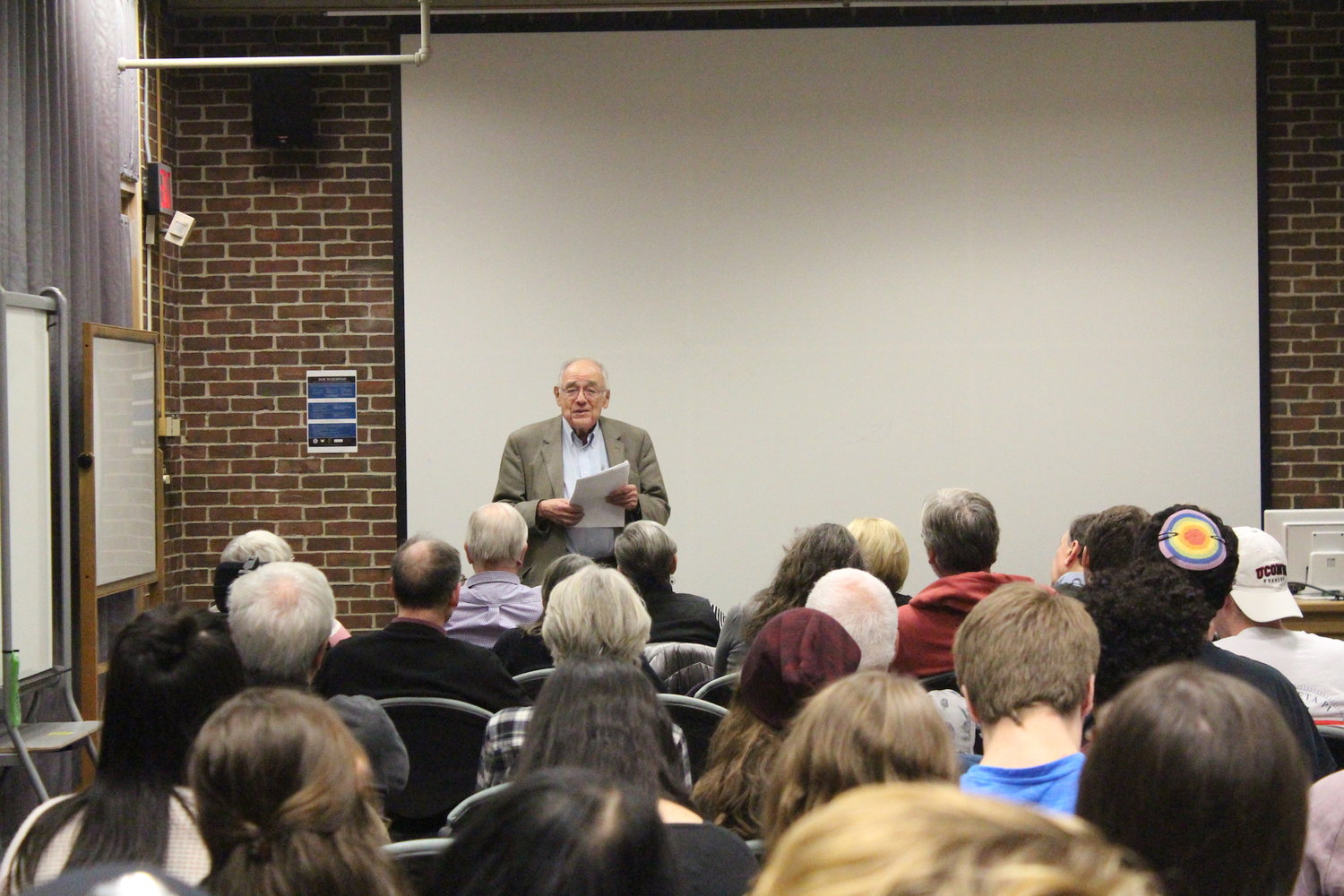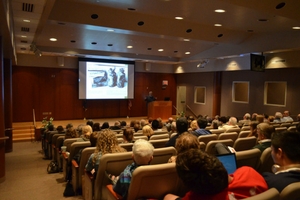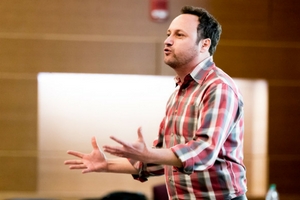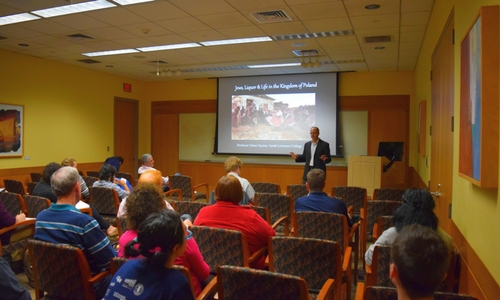By Jillian Chambers
In remembrance of Kristallnacht, Professor Ariela Keysar of Trinity College presented two talks on anti-Semitism. Professor Keysar’s colloquium featured “Variations of Anti-Semitism in a Global Perspective: Conceptual and Methodological Issues,” and her public lecture was titled “International Comparison of Anti-Semitism on Campus: Why Are Women More Likely to Be Targeted?”
In Professor Keysar’s first event, she quoted an America Jewish college student who said in 2014 “subtle anti-Semitism – it’s the last socially acceptable form of racism.” Professor Keysar went on to define anti-Semitism: a certain perception of Jews, which may be expressed as hatred towards Jews. There can be both rhetorical and physical manifestation of anti-Semitism; they can be directed towards Jewish or non-Jewish individuals and/or their property, or toward Jewish community institutions and religious facilities. Professor Keysar’s presentation asked to what extent Jews’ experiences and perceptions of anti-Semitism vary by country, through the lens of the victims?
Research shows, as Professor Keysar explained, that experiences and perceptions of anti-Semitism in Europe have increased. Especially in Hungary, within the last 12 months Jews have personally heard a non-Jew utter anti-Semitic comments, heard that “Jews are responsible for the current economic crises,” heard non-Jewish people suggest that the Holocaust is a myth or has been exaggerated, and heard non-Jewish people suggest that the interests of Jews in their country are different from the interests of the rest of the population. The survey that Professor Keysar cited also found that more Jews in Sweden and France than in any other of the investigated European countries claim to have been physically attacked because they are Jews.
In the United States, Professor Keysar noted that rhetoric targeting Jews escalated in the heat of the presidential election season. Particularly on social media, people asserted that Jews control the media. More than eight hundred journalists received anti-Semitic tweets, and the bios of anti-Semitic Twitter users frequently contain the words “Trump, nationalist, conservative, American and white.”
Professor Keysar’s next presentation on International Comparisons of Anti-Semitism on Campus asked why young Jews are more likely to experience hostility today. Similar to the study she cited in her previous presentation, the survey asked Jewish college students to share their experiences with anti-Semitism. 54 percent of students either experienced or witnessed anti-Semitism, moreso in the United States than in other countries like the United Kingdom and Canada.
Some important factors that are associated with anti-Semitism on campus, Professor Keysar explained, include gender, current religion, belonging/attending Hillel, and Zionist tendencies. Those that identified as female and held “Super Zionist” ideals were found to have a greater likelihood of encountering anti-Semitism on campus.
The Center for Judaic Studies and Contemporary Jewish Life would like to thank Professor Ariela Keysar for her wonderful presentations and everyone who attended for their enthusiasm.



 The Center for Judaic Studies hosted Professor Glenn Dynner of Sarah Lawrence College on October 20. He presented his talk, “Jews, Liquor, and Life in Eastern Europe” to an enthusiastic audience in the Class of 1947 Room in the Homer Babbidge Library. Dynner showed how Eastern Europe became a safe haven for Jews in the 1800s and how changes in social dynamics later forced them out.
The Center for Judaic Studies hosted Professor Glenn Dynner of Sarah Lawrence College on October 20. He presented his talk, “Jews, Liquor, and Life in Eastern Europe” to an enthusiastic audience in the Class of 1947 Room in the Homer Babbidge Library. Dynner showed how Eastern Europe became a safe haven for Jews in the 1800s and how changes in social dynamics later forced them out.